113 posts
Latest Posts by muahahahahah - Page 3
Cluster B Personality Disorder Mambo
Do you have a personality disorder? OOOR do you not have one, but want to learn about us? NOWS YA CHANCE
This server is for those with cluster B personality disorders, or those who wish to learn more about them. If you do not have a personality disorder please be respectful. Thusly, the server welcomes those with ASPD, NPD, HPD, and BPD. When joining the server please state your personality disorder (or lack there of) and your preferred pronouns so you can get the proper tags. Must be +18
Things that should be obvious but I gotta say:
must be +18
No ableism
No homophobia/transphobia/terfs/antisemitism/racism/binarists/transmeds
please respect trigger words. To know them check the trigger word channel
enjoy, and welcome!
https://discord.gg/KrZnUF8
Autism Myth-Busting Part 2
[Part 1]
1. Autistic people are violent: Autistics are more likely to be on the receiving end of violence and abuse than their neurotypical counterparts.
2. All autistics are non-verbal: Only 25-30% of autistic people are considered non-verbal. Some autistics are hyper-verbal and/or possess advanced language skills.
3. All autistics are good at math or science: Only 10% of autistic people have a savant skill. Many autistics aren’t particularly good at math at all. Although they may have certain skills or traits that are well suited for math and science, autistics can have interests or talents in any field.
4. Autistic people are asexual: Here are some videos discussing autism and sexuality: Autism & Sex Autism & Sexuality
5. People can “outgrow” their autism: Autism is a permanent genetic condition. More accurately, it is a neurotype. Someone who is autistic always will be, so autistic kids turn into autistic adults.
6. Autistic people can’t lie: Autistics may have a tendency to be more honest than neurotypicals, but they can definitely lie. I couldn’t find research on this one that isn’t terribly ableist, so I’ll just say this - I’m autistic and I can lie if I want to.
7. Functioning labels are an accurate way to describe autistics: Functioning labels are highly inaccurate for multiple reasons. Functioning can fluctuate on a day-to-day basis for many autistics. These labels are also used to invalidate autistic people by assuming that if they are low functioning they cannot make decisions for themselves, and to deny support for those who are high functioning.
8. Autistic people can’t have healthy relationships: Autism In Love is a documentary that discusses autistic relationships. Over 32% of autistic adults are in relationships. I myself am autistic and married.
9. All autistics have a great memory: Autistic people can have both memory strengths and memory difficulties. They may also have a working memory that’s entirely average.
10. Asperger’s isn’t a type of autism: As of 2013, the DSM considers Asperger’s and autism to be the same diagnosis, both falling under the category of ASD.
The whole self love thing is good and all but some people can’t fathom being loved. They can’t imagine there being anything good about them. So they can’t simply just stop doing unhealthy things, there’s a process.

Let it burn …
You can get it on prints here :
https://www.redbubble.com/people/underdott/works/39515091-let-it-burn?asc=u&p=art-print&rel=carousel
https://society6.com/underdott/s?q=new+prints
https://www.instagram.com/p/Byruu1ionn9/?igshid=o37lgtader7p
Schizo Spectrum Disorders + Disorganised Speech
People in the schizo spectrum can be hard or sometimes frustrating to talk to. People who are uninformed about schizophrenia and other psychotic disorders can mistake this as rudeness, silliness, or inebriation but it’s actually one of the symptoms of a debilitating mental disorder.
Disorganised speech often occurs in a schizophrenic person leaving their speech short, baffling or incomprehensible. It can display itself as random topic changes, gibberish, slurring, making up random words, word salad, and rapid and incoherent speech which makes the person hard to understand.
I complied a list of speech/thought disorders found in people on the schizophrenic spectrum with some basic definitions.
Most of these can be found in other mental disorders and you should bring it up with your doctor if you experience any of these often, without your control and without cause or stimulant (i.e. drug use, drunkenness, lack of sleep etc.)
ALOGIA
also known as poverty of speech. this is when there’s a lack of spontaneous speech. it can display itself in short and monosyllabic responses that trail off or end by the second syllable. it leads to an inability to make small talk or carry on simple conversation. in extreme cases it can even lead to partial mutism
( e.g. person 1: “hey how’s it going?”
person 2: “fine.”
person 1: “what do you want for dinner?”
person 2: [shrugs]
person 1: maybe we should go out, get chinese.
person 2: [shrugs]
person 1: do you want something else
person 2: no )
ECHOLALIA
this is the repetition of noises/words/phrases/sentences made by another person. persons experiencing echolalia often repeats questions or sentences directed to them and can make it difficult to carry on a conversation
( e.g. person 1: i have to go to the bathroom
person 2: go to the bathroom
person 1: can you watch my purse for me?
person 2: watch my purse for me
person 1: why are you doing that?
person 2: why am i doing that? )
THOUGHT BLOCKING
this is when there’s an abrupt pause in someone’s train of thought wherein the person often forgets the original topic. it can lead to multiple topics being covered in one sentence or to an unexpected and abrupt end to a conversation mid sentence
( e.g. i like that new song by [pause] … i wish i didn’t cut my hair. )
CLANGING
this is speech characterised by compulsive grouping of words by rhyming or alliteration. there’s no logic or reason in this sort of speech
( e.g. we have to go get green grass grisly grey. (or) when will we wait with words which wing were whims? )
NEOLOGISM
this is the creation of new words often in the form of gibberish or nonsense babbling. it can happen as full sentences or a normal sentence that veers off into it
( e.g. meaning to say “i want to go to sleep i’m tired” and actually saying “i want to go to sleep illa craviges”)
SCHIZOPHASIA/WORD SALAD
this is a bunch of random words strung together to no reason or purpose and while it can sometimes be vaguely related to the topic at hand, it comes out in a confusing array of disconnected words
( e.g. i want to get the purple apple match from the towel chair )
PRESSURE OF SPEECH
this is rapid paced, erratic, frantic speech. it’s usually loud and frenzied. it’s almost impossible to get the person experiencing it to pause and the listener will most likely not get a word in edgewise.
PERSEVERATION
this is the repetition of one word or phrase over and over after they’ve ceased to be relevant or appropriate to the situation.
( e.g. person 1: i’m going to take a walk in the park later
person 2: walk in the park
person 1: do you wanna come with?
person 2: walk in the park
[20 minutes later]
person 1: i’m gonna put on the kettle. do you want some tea?
person 2: walk in the park
NOTE: feel free to reblog whether or not you’re on the spectrum or have any mental illnesses at all. way too many people assume that schizo spectrum people are just rude or belligerent or mocking or joking when we’re really just exhibiting symptoms of our disorder.
some lesser known creepy wikipedia articles
bc im tired of posts that list the same articles over and over. some are my finds, some are from reddit and other lists. please don’t add weirdo comments or tags to this post, be mindful and respective of the victims involved in some of these articles.
also donate to wikipedia if you can !
goiânia incident // karen wetterhahn // video-enchanced grave markers // involuntary parks // stoneman disease // list of inventors killed by their own inventions // mike the headless chicken // “my way” killings // disappearance of rebecca coriam // phantom of heilbronn // body in the cylinder // disconnection // chris mccandless // jenny haniver // list of human stampedes // sogen kato // death of brandon vedas // unethical human experimentation in united states // diprosopus // rodney marks // vegetable lamb of tartary // martha mitchell effect // blue mustang // pit of despair // underground tv play // argyria // gold base // high priestess of blood // zoo hypothesis // jasmuheen // anatoli bugorski // leucochloridium paradoxum // kramatorsk radiological accident // georgia guidestones // list of selfie-related injuries and deaths // morgellons // 2016 clown sightings // chernobyl necklace // voluntary human extinction movement // backwards knees // elsagate + toy freaks // TGN1412 // jam (tv series) // america sings accident // metabolic supermice // potential cultural impact of extraterrestrial contact // heart attack grill // space burials // music on ribs // bubbly creek // torture memos // death of candace newmaker // love canal // murder stones // burger king pokeball recall // instinctive drowning response // pals battalion // total information awareness // the matrix defense // death and the internet + digital inheritance // human .
Neuroscience of BPD
Lately I’ve been hearing that BPD isn’t a real mental illness because nothing is actually wrong with our brains and so, naturally, that means we’re using BPD as an excuse for our mood instability and impulsive behavior.
Guess what, naysayers? You were COMPLETELY right and totally called us out on our nefarious scheme!! We did, in fact, all convene at a super secret BPD convention of sorts and plotted to infiltrate the psychiatric field.
Haha, no. With the help of alix660 and porcelaindissonance I’ve learned a lot about the neuroscience behind BPD. And, while much more needs to be done in terms of BPD research, I did find strong evidence that BPD does have biological causes. You know. Just like an actual mental illness.
So here’s what we found, sorted by brain structure:
Amygdala: This brain structure is very heavily involved in emotional regulation and responses, particularly negative emotions. An fMRI study of BPD patients while being subjective to distressing visual stimuli found that our amydalas were significantly more reactive than those of control patients. This means that either the signals in our amgydalas are much more intense, or they continuing firing in our brains, preventing us from shutting down our emotional responses. Or perhaps it’s both, because that’s fun.
Another thing to note is that the amygdala receives tons of visual information, sent by the thalamus. The thalamus circumvents emotional processing in the prefrontal cortex (where we would consciously process how to regulate our emotions) and thus is involved in automatic, subconscious emotional processing. This is probably why our mood swings are so fast, unpredictable, and uncontrollable. It’s a knee-jerk reaction to even the tiniest triggers we come across. (Herpetz, et al.)
Amygdala volume is significantly reduced in BPD patients as well. (van Elst, et al.)
Hippocampus: This structure is involved in formation and retention of long-term memories, as well as autobiographical memories. Not only is hippocampal volume reduced in PTSD and MDD, it is also reduced in BPD. (van Elst, et al.)
I know from my studies that the reason for hippocampal volume reduction in PTSD and MDD comes from prolonged activation of the stress response. When we go into “fight or flight” mode, several physiological changes take place: our immune system shuts down, digestion stops, etc. But most importantly, when we enter “fight or flight,” glucose, which is necessary for cell metabolism, is redirected from the hippocampus and to your muscles. If you’re faced by a life-challenging thing, like a pack of velociraptors, you don’t want to think about it. You want to run, and you want to run fast. This is biologically adaptive in the short-term and in prey species… but not so with humans, because we can have this reaction to long-term, non-threatening stressors. So in long-term distress—like MDD, PTSD, and BPD—our hippocampus is starved of energy and atrophies. Result? We have absolutely terrible memory.
Prefrontal cortex: This is where we do our conscious thinking. More specifically, the medial prefrontal cortex, which is involved in processing emotional memories, is more active in the BPD brain. Essentially, this means we have difficulty mediating our conscious emotional responses.
In the ventrolateral prefrontal cortex, BPD brains also show abnormally high reactivity to aversive stimuli. This part of the cortex directly connects to our good friend the amygdala, and thus has some level of control over emotion-driven responses. (Herpetz, et al.)
In the anterior cingulate cortex, which is involved in feelings of apathy and emptiness, we see a significant reduction in volume in the BPD brain. The ACC is linked to self-harm and pain sensation. (van Elst, et al.)
In the orbitofrontal cortex, we also see volume reduction in BPD. The OFC is responsible for irritability, impulsivity, and instability, which are our favorite things.
Fusiform gyrus: Found in the temporal lobe, the fusiform gyrus is the facial recognition center of the brain. And—you guessed it—it’s also shown to be hyperactive in the BPD brain. Which makes sense when you think about it: we are EXTREMELY sensitive to even the slightest changes in the facial expressions of other people. If you appear disinterested, annoyed, angry, or otherwise upset, that’s an immediate trigger. (Herpetz, et al.)
Taken together, this means that the limbic circuits (emotional regulation) and the prefrontal cortex (executive control) are uniquely involved in BPD, resulting in a hyperarousal-dyscontrol syndrome. As of right now, no other psychiatric illness has this combination of reduced brain structure volumes and hyperactivity in certain regions. (van Elst, et al.)
Bonus!!!
Serotonin: Most of us know serotonin as a crucial neurotransmitter involved in major depressive disorder. But in BPD, studies show that reduced serotonin activity is found in several locations in the brain, including the cingulate cortex, which is critical in processing incoming emotional cues. Reduced serotonin impairs inhibition of aggressive behaviors, both directed at others (like outbursts) and directed at the self (like self-harm and self-hatred). Genes involved in serotonin can easily be studied. (Skodol, et al.)
Sources:
Skodol, et al. “The Borderline Diagnosis II: Biology, Genetics, and Clinical Course”
Herpetz, et al. “Evidence of Abnormal Amygdala Functioning in Borderline Personality Disorder: A Functional MRI Study”
van Elst, et al. “Frontolimbic Brain Abnormalities in Patients with Borderline Personality Disorder: A Volumetric Magnetic Resonance Imaging Study”
PS I did read several other articles that corroborated these findings, so it’s not like these are the only sources of evidence I found that point to the biological nature of BPD.
me: “I have social anxiety”
what people hear: “I am a bit shy”
what the internet reads: “OwO cute shy boi,,must protecc!! hehe so quirky!1!!”
what social anxiety really is: taking months of knowing someone to feel comfortable enough to have a real conversation, your mind going blank during small talk, inability to participate in groups of more than three people, mentally rehearsing “simple” tasks such as ordering food or making a phone call and your heart racing anyway, constantly feeling watched, being afraid of getting places too early or too late, fear of being judged over the most random things (”is this a socially acceptable ice cream flavor to buy?” “what if they think my shampoo is weird” “will they hate me if I get up to throw my trash away?” “what if I emptied the dishwasher wrong!”), having panic attacks when you have to ask a teacher for help, constantly feeling left out or excluded even with friends, your hands shaking when you get called on in class, being overwhelmed in crowds and public transportation, disliking being touched, perpetual fear of disappointing those in authority, overall difficulty forming relationships, missing out on milestones or social events because you either have no friends to go with or know it will be overwhelming, preferring to be in groups of three so that conversation isn’t solely up to you, making so many everyday tasks so much more difficult than they need to be due to a crushing fear of being judged by random strangers you will literally never see again and needing to be seen as flawless







In case it’s helpful - here’s a link to Marsha Linehan’s full DBT Skills Training Handouts & Worksheets. These have helped me a phenomenal amount & idk, I hope they might help some of you.
shoutout to abuse survivors & victims who fluctuate between “they didnt Really abuse me it wasnt That Bad its fine everything is okay” and “i hate them i want them to Burn” as a survival strategy, especially if you’re stil in regular contact with your abuser, and you wind up with a lot of self doubt because you spend so much time actively buying in to their gaslighting
it Is a survival strategy, it doesnt make you fake or bad.
Jo I’m crying
We (germany) had a comedian party to vote for the european election and a guy named Nico Semsrott will be in the parlaiment
He makes commedy about depression and his show was called “happiness is just a lack of information” this cracks me the fuck up hahaha I love that dude
I hate to sound like one of those guys but I honestly think a lot of people are now using the terms executive dysfunction, dissociation, and intrusive thoughts either incorrectly or to excuse particular behaviors otherwise not caused by mental illness but by a lack of desire to do things.
Executive dysfunction isn’t just limited to not having the desire/energy to do things. It also involves impulsivity, mood swings, memory problems, and troubles with social interaction.
Dissociation isn’t just spacing out. It’s a disruption in your consciousness, your memory, and your perception on the world.
Intrusive thoughts are not harmless, quirky commands made by your brain. They are scary and often involve terrible acts of violence.
People throwing around these terms with incorrect or oversimplified definitions is harmful. You get a lot of people going “oh that’s me!” and thinking whenever they daydream in class they’re actually dissociating and call it that, not stopping to think that it’s actually a symptom developed from severe PTSD. Or how executive function primarily effects those with ADHD or brain injury and yet people who take a bit to do their homework or anything involving a bit of effort cite it as their reason for doing it so late rather than a simple lack of desire to do so. Or how intrusive thoughts can make someone so shaken and anxious that they become terrified of themselves but thoughts like “eat a leaf off the ground” somehow fall under this classification.
If you are experiencing these debilitating symptoms, get help if you can. Go to a psych, a therapist, counselor, anyone. If you don’t have the means to, find online support communities. Don’t spread misinformation and cheapen how terrifying and debilitating these symptoms really can be
In defense of pre-natal screening
I’ve seen a lot of protests against screening fetuses for things like Down syndrome, autism and so on. Here, I’ll explain why I, an autistic person, disagree fundamentally with those.
(PLEASE NOTE: My reasoning is based on the idea that abortions in and of themselves are morally fine and that a fetus is not a person.)
“In a few years, there won’t be any people with Down Syndrome born anymore, because these days everybody chooses to abort them!” Ridiculously unlikely. There’s always going to be somebody who doesn’t have an abortion. True, there won’t be exactly as many born as there are now, but who’s to say that the current number is inherently better? How, exactly, do you calculate that?
“Well, what if everybody with Down syndrome fetuses gets an abortion, though? Just what if?” I say this with a maximum of respect: While obviously Down syndrome people have the same value as humans that everybody else has, it’s still true that Down syndrome causes a huge risk of poor eyesight, poor hearing Alzheimer’s disease, cancer and an early death. If a condition kills people then we do not need to actively try to preserve it.
“This indicates that people with Down syndrome or autism or whatever are undesirable!” No, it doesn’t. For many reasons.
Simply telling a woman that her fetus has, say, autism is not the same as saying it’s an undesirable fetus.
That a woman aborts an autistic fetus doesn’t mean that she wants everybody to do the same. It just means that she wants to have an abortion. As is her damn right.
All abortions are based on the idea that the potential child is undesirable. That’s why women choose to get abortions instead of having the kid.
The fact that people want to abort Down syndrome fetuses and autistic fetuses and so on might make them seem undesirable, but not whether the abortions are allowed to happen or not.
“If your mom had felt like this, she would have aborted you!” Once again: That’s the case with all abortions, regardless of reason. So unless you find all abortions immoral, this is not a valid argument.
“This is eugenics!” No, it’s not. It’s not a concentrated effort to eradicate black people–or any other people. It’s just letting women make an informed choice about their own bodies that affects nobody else. Lemme use a simile to explain: If a political magazine gets forcibly shut down because it criticizes the government, that’s censorship. If it gets shut down because nobody is interested in buying it, though, then that’s not censorship at all.
“This is offensive to many people!” A woman’s right to choose is her right. Regardless of whether you find it offensive or not.
“It’s discrimination!” If a woman who got raped has an abortion, does that mean she’s discriminating against actual people who were born from rape? No. And this is the same. Actual people cannot be discriminated against by an abortion because we’re not affected the slightest bit.
“Well, what if a woman wanted to abort a black fetus because she hated black people?” Then we still can’t force her to have the child. A fetus doesn’t become a person just because of the reason that a woman aborts it.
“Look, it’s not that I don’t think women should be stopped from making choices about their bodies.” But you do clearly want to stop them from making informed ones. After all, you want to withhold information about a woman’s body from her, so that she won’t make the choice she prefers with, but instead do what you’ve decided she should.
TO FINISH OFF: Since we have info about a woman’s fetus–or at least the ability to easily get it–denying it to her is blatantly anti-woman. It’s saying “We’ve decided you don’t get to know things about your body, because then you’ll do as you want instead of doing what we’ve decided that you should.”

Are you feeling anxious, or depressed?No need to worry it’s National Towel DaySearch things like … * 101 unique ways to use a towel. * Things a regular towel can do. * Research Douglas Adams.
What’s the Real Lesson?
Here’s something that happens to ADHD children a lot: Getting pushed beyond their limits by accident. Here’s how it works and why it’s so bad.
Child says, “I can’t do this.”
Adult (teacher or parent) does not believe it, because Adult has seen Child do things that Adult considers more difficult, and Child is too young to properly articulate why the task is difficult.
Adult decides that the problem is something other than true inability, like laziness, lack of self-confidence, stubbornness, or lack of motivation.
Adult applies motivation in the form of harsher and harsher scoldings and punishments. Child becomes horribly distressed by these punishments. Finally, the negative emotions produce a wave of adrenaline that temporarily repairs the neurotransmitter deficits caused by ADHD, and Child manages to do the task, nearly dropping from relief when it’s finally done.
The lesson Adult takes away is that Child was able to do it all along, the task was quite reasonable, and Child just wasn’t trying hard enough. Now, surely Child has mastered the task and learned the value of simply following instructions the first time.
The lessons Child takes away? Well, it varies, but it might be:
-How to do the task while in a state of extreme panic, which does NOT easily translate into doing the task when calm.
-Using emergency fight-or-flight overdrive to deal with normal daily problems is reasonable and even expected.
-It’s not acceptable to refuse tasks, no matter how difficult or potentially harmful.
-Asking for help does not result in getting useful help.
I’m now in my 30’s, trying to overcome chronic depression, and one major barrier is that, thanks to the constant unreasonable demands placed on me as a child, I never had the chance to develop actual healthy techniques for getting stuff done. At 19, I finally learned to write without panic, but I still need to rely on my adrenaline addiction for simple things like making phone calls, tidying the house, and paying bills. Sometimes, I do mean things to myself to generate the adrenaline rush, because there’s no one else around to punish me.
But hey, at least I didn’t get those terrible drugs, right? That might have had nasty side effects.

Ain’t that the truth?






Elizabeth Debicki and Gemma Arterton as Virginia Woolf and Vita Sackville-west in Vita & Virginia (2019), with excerpts from Virginia and Vita’s love letters.



When a new cafe opens on the high street, Yuki’s constant fears and worries finally catch up with her – will Beniko remain by her side, or is her role as the authoress’ muse finally over?
Read/DL at the Google Drive link above!






Chernobyl (2019) Episode 1 dir. Johan Renck “What is the cost of lies? It’s not that we’ll mistake them for the truth. The real danger is that if we hear enough lies, then we no longer recognise the truth at all.”
Workbooks and Self-Help Books for Mental Illnesses & Symptoms
Hello everybody! I was just thinking about how I always recommend people who can’t get therapy to use workbooks, so I thought I’d make a quick list of some you could look at. I’m not comfortable recommending books for things I have not struggled with (like, if I was looking at the description of a book on OCD I’d have no idea if it was good or not) but I think I’ve covered a lot. Some of these are series which have workbooks for specific disorders like bipolar, etc., if you want to find some. Plus, you don’t have to be diagnosed with something to use a workbook if you think it’ll help you.
Workbooks are sometimes made to be done in conjunction with therapy, or something like that, but anyone can still get something out of them if you put in regular work and try to apply the skills.
I’ve linked them all the Amazon because they’re usually cheaper on there.
For reference: DBT = dialectical behaviour therapy, CBT = cognitive behavioural therapy, ACT = acceptance and commitment therapy
Anxiety, Depression, and Intrusive Thoughts
The CBT Anxiety Solution Workbook
The Anxiety and Worry Workbook
The DBT Skills Workbook for Anxiety
The Anxiety Toolkit
Depressed and Anxious: The DBT Workbook
The Mindfulness and Acceptance Workbook for Depression
The Cognitive Behavioural Workbook for Depression
Overcoming Unwanted Intrusive Thoughts
The Anxious Thoughts Workbook
Borderline Personality Disorder
The BPD Survival Guide
Stronger Than BPD
You Untangled
Mindfulness for BPD
The BPD Toolbox
Beyond Borderline: True Stories of Recovery
Interpersonal Problems
The Interpersonal Problems Workbook
ACT for Interpersonal Issues
Anger
The DBT Skills Workbook for Anger
The Anger Workbook for Teens
Anger Management for Everyone
ACT on Life Not on Anger
Trauma and PTSD
Overcoming Trauma and PTSD
The PTSD Workbook For Teens
The Complex PTSD Workbook
You Empowered
Self Harm
Freedom from Self harm
Stopping the Pain: A Workbook for Self-Injury
Rewrite: The Journey from Self-Harm to Healing
General Emotional Issues/Multiple Disorders
Letting Go of Self-Destructive Behaviors: A Workbook
The DBT Skills Workbook
Don’t Let Emotions Run Your Life
The Mindfulness Solution for Intense Emotions
The Mindfulness-Based Emotional Balance Workbook
Thoughts and Feelings: Taking Control of Your Moods Workbook


Different Thought Disorders Common With Those On The Schizophrenia Spectrum / Psychosis Spectrum
Thought disorders are when your thinking process is impaired, often affecting your speech! They’re common in ADHD and autism, but also can appear in those in the schizophrenia spectrum or psychosis spectrum. Let’s talk about them!
Remember, none of these are done on purpose!
Alogia - randomly stop talking in the middle of the sentence, slurred consonants, being unable to grasp the right word, and trailing off into a whisper before ending the sentence
Blocking - suddenly stopping in the middle of the sentence, forgetting what the sentence was about, and then starting a new topic after the blocking
Clang Association - Rhyming or doing alliterations in the middle of the sentence. An example would be “So yesterday when I went to the store door floor more … I mean, yesterday say lay may..”
Echolalia - Repeating what someone says right after they say it or repeating sentences heard earlier. An example would be a mom asking “Do you want icecream” and a child responding “Do you want icecream…. yes!”
Pressure of Speech - speaking rapidly without pausing, loud, and hard to understand
Word Salad - Using a series of words in an odd order making it impossible to understand the sentence, some of the words not having ti do with the sentense at all. An example would be a woman asking “What kind of coffee did you get?” and her friend responding “Several, several berries. Strawberries. Steaming, colours, fruits, red blue pink”
(word salad is often confused for manipulative behaviour, please know that nobody displays word salad on purpose. It is not manipulative. )
Tangentiality - going off topic before answering the question. An example would be, your friend asks “when did you start gardening?” and you reply “My garden has three main vegetables. I love vegetables but my brothers don’t. I haven’t seen my brothers in years, I should call them.”
Stilted Speech - spoken in a formal essay format rather than casual speech, more information than average when explaining, repeating information
(also common in autism spectrum disorder, if you’re on the spectrum you may find yourself doing this more while info-dumping about a special interest)
If I happened to miss any! Feel free to add on!


joanna newsom “the things i say” / anne carson “plainwater”

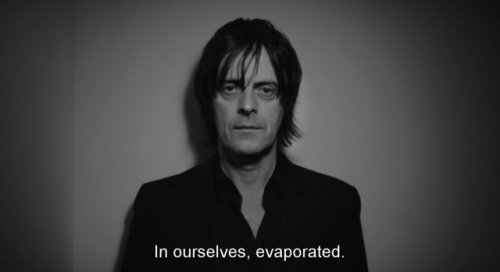
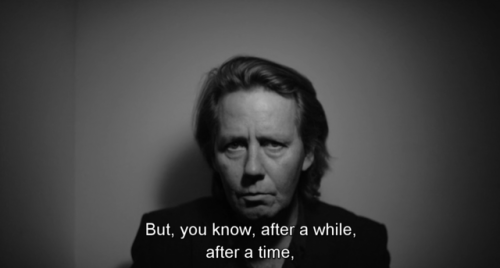
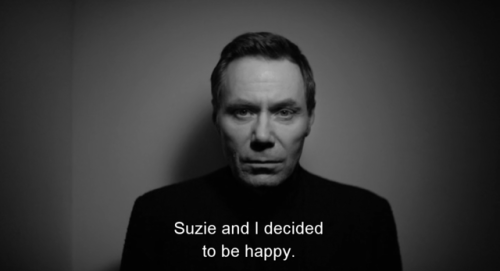

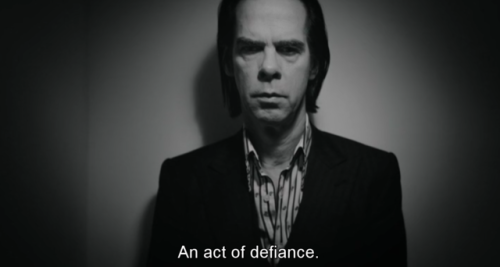
Nick Cave talking about the death of his son, Arthur
One More Time with Feeling (2016) dir. Andrew Dominik
one of the biggest struggles of being borderline, at least in my experience, is that i hate the idea of using my disorder as an excuse.
i don’t think that a lot of people realize that having a personality disorder means that EVERYTHING i do is because of that disorder. every emotion and behavior comes from it, and i have to actively correct and change my responses and cognitions regularly to keep myself in line.
so it’s hard, because you spend your whole life trying to function normally, because you CAN if you really really try. and people are okay with you having bpd, until you actually present a symptom. but if i get irrationally angry, i can’t say “it’s because i have bpd,” because it will come off as an excuse, even though that’s honestly why. i don’t KNOW why i’m so upset about this, i don’t KNOW why my mood dropped so quickly or why i want to die on days when nothing bad has happened. the only response is because i’m borderline.
but it’s just an excuse, or people think it’s a crutch, and so you have this diagnosis that explains everything about you, but you can’t use it to explain why you do things. not the way that you can explain that you’re sneezing so much because you have a cold, or you can’t eat ice cream because you’re lactose intolerant. those actions or avoidances are because of health problems that people are okay with. you explain that this is why you are doing or not doing something, and they’re grateful to have an explanation. but it’s not like that for us. we suffer in silence so we aren’t seen as manipulative or just unwilling to change. and it isn’t fair.
Are fedoras really that bad?
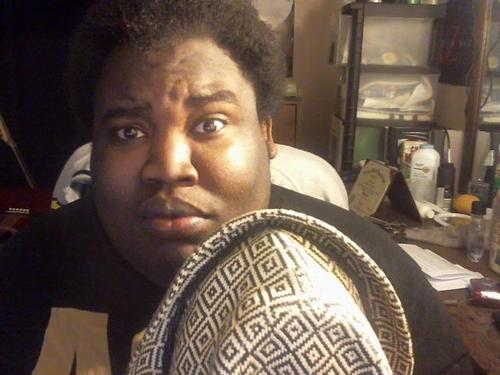




YES YES THEY ARE
FBI Vault Files on Serial Killers
Andrew Cunanan (3 parts)
The Atlanta Child Murders (24 parts)
Herbert Baumeister (164 pages)
Ted Bundy (3 parts)
Jeffrey Dahmer (19 parts)
John Wayne Gacy (1 part)
Jack the Ripper (1 part)
Charles Manson (1 part)
The Zodiac Killer (6 parts)
The Borderline Personality Disorder Checklist
This is a checklist to help one understand Borderline Personality Disorder. One may use it to self-diagnose or as a worksheet to present to a doctor or therapist or other medical professional and better communicate symptoms they are experiencing. All information is taken from the DSM-5.
Section I Must check TWO or more of the following:
I have identity problems, including: I have an unstable sense of identity, I have poor self-esteem and excessive self-criticism, and I often experience dissociation when I am under stress.
I am unstable in my goals, aspirations, values, and/or career plans.
I have a heightened sense of empathy and am hypersensitive to the feelings and needs of my peers, although my perceptions are often biased towards negative attributes.
There is a lot of instability in my relationships, in that I am needy, mistrustful, and anxious.
__ / 4 Total
Section II Must check TWO or more of the following:
I have cognition problems and difficulty retaining information and remembering people and events.
I have affectivity problems and difficulty controlling the range and intensity of my emotional responses.
I have problems with interpersonal functioning and being aware of my own actions and feelings and how they affect others.
I have difficulty controlling my impulses.
__ / 4
Section III Must check ONE or more of the following:
I am very impulsive and often act on things without planning.
I engage in dangerous, risky, and/or potentially self-damaging activities with no concern to my personal limitations.
I am easily angered.
__ / 3 Total
Must have at least FOUR checks TOTAL by the end of this section, including ones from previous section (If you checked two above, you only need two here, for example):
My emotions are incredibly unstable, and I change moods often (sometimes within minutes), feeling things more intensely than others seem to.
I experience intense feelings of nervousness, tenseness, panic, and/or anxiety. I have fears of the future and of falling apart or losing control.
I get separation insecurity and fear abandonment.
I am frequently depressed and feel hopeless and have a difficult time recovering from such moods.
__ / 7 Total
Section IV Must check FIVE or more of the following:
I have a fear of abandonment and do my best to avoid it.
I switch between idealizing and devaluing the people in my life. My relationships are often unstable and intense.
I have an unstable sense of self and often question my identity.
I am impulsive.
I have attempted suicide and/or I self-harm.
I have frequent mood swings.
I often feel empty or depressed and have doubts about my future.
I am hot-tempered.
When stressed, I am paranoid and/or I experience dissociation.
__ / 9 Total
Section V Must check ALL of the following:
My symptoms impair my personality and social functioning
My symptoms are consistent across a broad range of personal and social situations.
My symptoms have lasted a while and started in early adulthood or earlier.
My symptoms are not caused by medication, drug use, or another medical condition.
-
At this point, if you have checked the minimum, you may qualify for a diagnosis of Borderline Personality Disorder. The next section is a compiled list of symptoms, behaviors, thought patterns, etc. often found in borderline patients.
If you did NOT meet the minimum, check out Major Depressive Disorder, General Anxiety Disorder, Post-Traumatic Stress Disorder, Bipolar Disorder, or Obsessive-Compulsive Disorder. If you checked ALL of Sections II and V but still did not meet the minimum in other sections, look into other personality disorders, especially other Cluster B’s.
-
Section VI Common Symptoms and Behaviors associated:
I have disordered eating patterns.
I am sometimes obsessive.
I sometimes get intrusive thoughts which I am unable to ignore.
I become attached easily.
I often “bait” people in order to start a conflict.
I have trouble sleeping, or I sleep too much.
I have a child-like curiosity.
I am dependent on others.
I sometimes mimic or mirror others.
I have nightmares.
I have difficulty processing information.
My appearance changes often.
I have an extreme need for acceptance.
I have a natural rejection of people in authority.
I constantly feel like I need to prove myself over and over again.
I very much live in the moment, to the point where past actions don’t matter. How I judge others (and myself) depends entirely on what is happening right now.
I isolate myself, even when I need social interaction.
I am often defensive.
I have anxiety/panic attacks.
I experience memory lapses.
I consider myself a perfectionist.
I react very strongly to mundane experiences.
I have a difficult time making decisions.
I have difficulty completing tasks.
I often feel misunderstood, mistreated, or victimized.
When I am upset, I am unable to calm down without help.
I castrophicize my problems and see the smallest things as the end of the world.
I often see my problems as unsolvable and hopeless to fix.
I hold grudges.
I alternate between seeing others as completely for them or against me.
I have a hard time recalling someone’s love for me when they’re not around.
I change my opinions depending on whom I’m with.
Sometimes the slightest provocation will make me feel abandoned.
I feel distrustful and suspicious a great deal of time.
I rush into relationships based on an idea of a person rather than the person themselves.
__ / 35